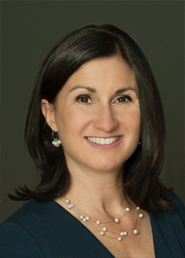
Melody Rose intends to resign as chancellor of the Nevada System of Higher Education on Friday after less than two years in the role.
The system Board of Regents will hold a special meeting Friday to consider a separation agreement that Rose has already signed. The agreement, which would terminate her four-year contract after only 19 months, stipulates that Rose will receive a $610,000 lump-sum severance payment and that she has up to one week to revoke the agreement after it is approved. She will continue to receive health benefits through the month of April and will forfeit any remaining vacation pay, housing allowance and other benefits.
It’s unclear exactly what pushed, or pulled, Rose out of her position. She and members of board leadership did not respond to Inside Higher Ed’s request for comment Tuesday, and a system spokesperson declined to comment. But her likely departure comes six months after she submitted a harassment complaint to the system general counsel. In the complaint, she alleged that Cathy McAdoo, chair of the board, and Patrick Carter, vice chair, engaged in a pattern of abusive behaviors, The Nevada Independent reported. Rose claimed that McAdoo and Carter discriminated against her because she was a woman and harassed her because of a difference in political beliefs.
“Upon my arrival I immediately heard stories about NSHE’s persistent disregard for female employees,” Rose wrote in the complaint. “System Administration colleagues, presidents, reporters and community members warned me about a pervasive sexist culture and wanted both to alert me to this ‘Old Boys Club’ environment and to ask for my assistance is [sic] changing it.”
Rose detailed several incidents in which she felt that board leadership tried to undermine her. She, McAdoo and Carter often clashed over COVID-19 protocols. In one instance, McAdoo allegedly changed her position on a systemwide mask mandate during a board meeting, telling Rose that the system had “no place” in dictating COVID-19 policies—even though she’d already said she would consider such a mandate. Regarding COVID-19, Rose said in her complaint that McAdoo was “wildly inconsistent, indecisive, [and] attempting to shift blame for inaction to me and my team, at times calling me obstructionist.”
The chancellor also accused McAdoo and Carter of withholding information from her and routinely undermining her professional integrity, the Independent reported.
McAdoo and Carter did not publicly comment on the investigation at the time, instead releasing a joint statement to say that the board “takes all complaints seriously, and is committed to having a thorough investigation conducted.”
Third-party investigators with the firm Kamer Zucker Abbott ultimately rejected the complaint in February after finding insufficient evidence of gender discrimination.
Nevada would not be the first institution that Rose has left prematurely. She resigned her position as chancellor of the former Oregon University System after 18 months to take a job as president of Marylhurst University. At the time, the Oregon system was undergoing a period of governance reform, which gave each large four-year campus its own governing board and also created boards for the technical and regional institutions. As a result, the systemwide chancellorship role was dissolved.
Four years after Rose became president of Marylhurst, the institution permanently closed. The small private college in Portland, Ore.—which had been an early player in online education for working adults—had suffered a decade of enrollment declines and increased competition from other institutions in the online market before closing in 2018. As the institution wound down operations, faculty and staff members put some of the blame on Rose, who they said didn’t understand the institution before trying to change it.
 from Inside Higher Ed https://ift.tt/bp7weUN
from Inside Higher Ed https://ift.tt/bp7weUNvia IFTTT
Comments
Post a Comment